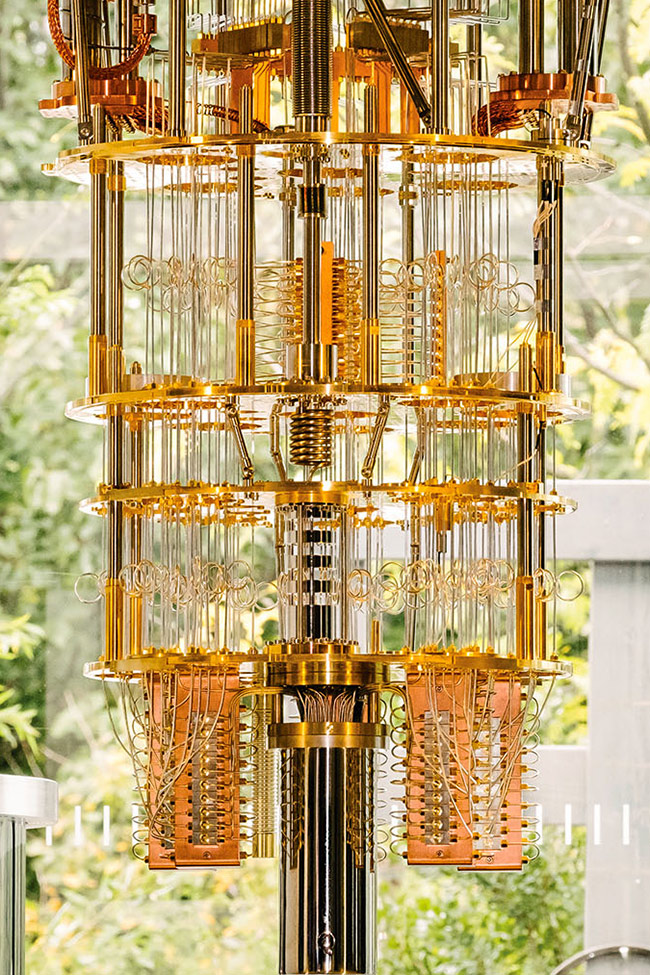|
Quantum computers, like IBM’s 50-qubit (quantum bit) machine, will quickly solve problems that are unsolvable today. (Photo credit: IBM) |
With support from a $2.1 million research grant from the Defense Advanced Research Projects Agency (DARPA), an international group led by industrial and systems engineering faculty members Tamás Terlaky, Luis Zuluaga, and Boris Defourny is working on optimization algorithms in quantum computing.
“We want to explore the power of existing quantum computers and those that are predicted to exist in the future,” says Terlaky. “We’ll be looking at combinatorial optimization problems for quantum computing with the goal that, in four years, we’ll be able to demonstrate that quantum computers are surpassing the capabilities of classical computers, at least on some problems.”
Terlaky says their work is related to the theory of quantum supremacy, which, very broadly, states that quantum computers will be exponentially better than current silicon computers at quickly solving problems that are unsolvable today. Those problems could relate to fields as diverse as finance, security, genetics, machine learning, transportation, and manufacturing, and could model practical, binary questions such as whether to purchase or not purchase, to build or not build, and so on.
There is a long way to go to achieve that end. Current quantum computers are about where sili-cone-based computer chips were in the 1950s, says Terlaky, who is also affiliated with Lehigh’s Institute for Data, Intelligent Systems, and Computation (I-DISC).
“In the ’50s, we had gym-size computers with very little memory, and very little processing power,” he says. “A lot of programming was written in assembly language, getting the machine the codes, and spec-ifying every gate and route for the information. At this point with quantum computers, the programming language is very similar. It’s not a high-level language where you can write a complicated code easily. So all this software has to develop along with the upcoming hardware.”
Until recently, he says, most of the work in this area was being done by theoretical physicists, electrical engineers, computer engineers, and theoretical computer scientists. But the theory of quantum supremacy is essentially one big optimization problem.
“And we are the optimizers,” says Terlaky. “Very few people in the optimization community have looked at these problems so far. We are definitely the first sizable group to do so.”
Other collaborators on the project include Giacomo Nannicini (IBM T.J. Watson Research Center), Stefan Wild (NAISE, Evanston, IL, and Argonne National Lab), Alain Sarlette (INRIA, Paris, France), Xiu Yang (ISE, Lehigh University), and Monique Laurent (Centrum Wiskunde & Informatica (CWI), Amster-dam, Netherlands).

